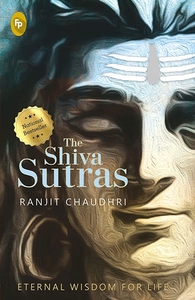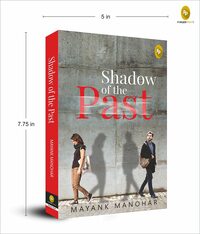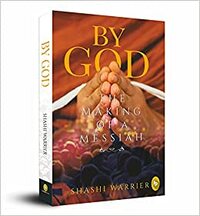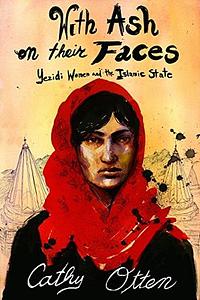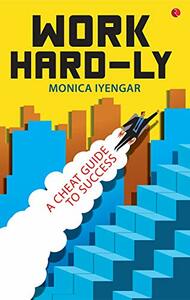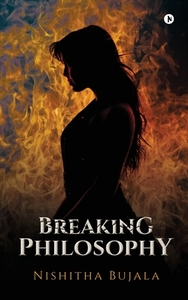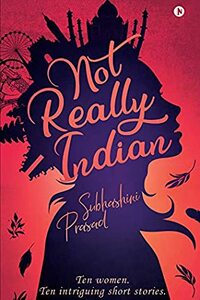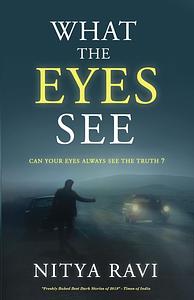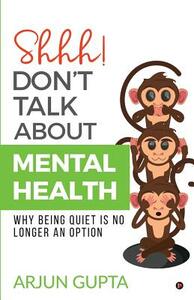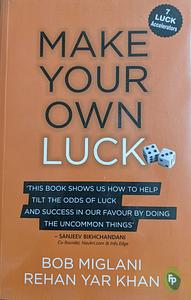You need to sign in or sign up before continuing.
Take a photo of a barcode or cover
thebookishelf's Reviews (431)
This book and the interpretation of the sutras is beyond one's perceptive ability. It is wonderful but sadly most of the world is unaware of it. It has one positive thing though...people have not been able to corrupt and modify this ancient teaching. I can only ask you to meditate upon the sutras and see what change and energy you feel. Although not much publicized it is one of the crown jewels of Hinduism and Shaivism.
This book, The Shiva Sutras by Ranjit Chaudhri, I feel is a good starting point to whoever wants to read and understand the Shiva sutras. It surely makes you see things differently. For eg. when you worship God you usually visualise the form of the Lord but you don't know the meaning of his various Aabhushans. The symbolic representation of each of these is explained beautifully. All the Sutras are divided into 3 sections: Removing the Veil, Detaching from the Body, and Awakening.
Author Ranjit Chaudhri makes you see why and how you need to see life in its fullest. The various examples he gives to explain a point is what makes the discourse more memorable. There are many genuine gems of spiritual wisdom in here. And that's one of the major reasons I'd recommend this to anyone.
This book, The Shiva Sutras by Ranjit Chaudhri, I feel is a good starting point to whoever wants to read and understand the Shiva sutras. It surely makes you see things differently. For eg. when you worship God you usually visualise the form of the Lord but you don't know the meaning of his various Aabhushans. The symbolic representation of each of these is explained beautifully. All the Sutras are divided into 3 sections: Removing the Veil, Detaching from the Body, and Awakening.
Author Ranjit Chaudhri makes you see why and how you need to see life in its fullest. The various examples he gives to explain a point is what makes the discourse more memorable. There are many genuine gems of spiritual wisdom in here. And that's one of the major reasons I'd recommend this to anyone.
This is an achingly beautiful, heart wrenching book about a second chance at love and with wonderfully developed character and engaging narration. The level of emotion it pulled out, right from the beginning, was so strong and intense! Just the way it is written makes you feel everything that they are going through in a very realistic way. Puts you right there with the characters.
I loved seeing all the effort Lavanya put into fixing her relationship with Rehan. How much she treasured every moment spent with Rehan. And how he did everything in his power to win back her heart and earn back her trust.
This book was basically all about the healing process that Lavanya, Rehan, and Arpita go through. This book is about regret and coming out of the past. It makes you think about life in general and how one decision can alter your entire life!! Such a wonderful story! The situations, the emotions all felt so real!!
This is an emotional read that chronicles their journey through regret, forgiveness, redemption, and love. You get a very honest account from Lavanya, Rehan and Arpita. It’s very well written and the character development was well done. Even though it was a bit slow moving at times, I was genuinely interested the whole time. It kept me wondering how exactly things would play out.
I loved seeing all the effort Lavanya put into fixing her relationship with Rehan. How much she treasured every moment spent with Rehan. And how he did everything in his power to win back her heart and earn back her trust.
This book was basically all about the healing process that Lavanya, Rehan, and Arpita go through. This book is about regret and coming out of the past. It makes you think about life in general and how one decision can alter your entire life!! Such a wonderful story! The situations, the emotions all felt so real!!
This is an emotional read that chronicles their journey through regret, forgiveness, redemption, and love. You get a very honest account from Lavanya, Rehan and Arpita. It’s very well written and the character development was well done. Even though it was a bit slow moving at times, I was genuinely interested the whole time. It kept me wondering how exactly things would play out.
'By God: The Making of a Messiah' by Shashi Warrier is a light-hearted mystical adventure story about two Ghublistani, Tomikanza and his barber Neepane, bonds who meet various people during their journey.
I believe this book moved me a little. Not only because the writing was so great but also the thoughts contained in it were so close to what I was feeling. I still believe the ideas contained here are timeless and profound.
By God: The Making Of Messiah is a brilliant (and oddly prescient) satire. With the book, author Shashi Warrier offers a skewering criticism of democracy, the politics behind it, and its far-reaching ramifications in a manner that is at once humorous, intelligent, and bone-chillingly accurate. A bleak and ominous tone dominates the novel, befitting its narrative. By God: The Making of Messiah is a fantastically engaging and smart novel, and had me contemplating its characters and story long after I closed its covers.
Shashi Warrier examines how society and human nature combine to debase and ultimately subvert political inspiration. Bold stuff for the period. Stylistically, aside from a short, pompous section at the beginning that will hurt your head, the body of the book is appealing. The story is inventive and solidly constructed, modern and humanist.
I believe this book moved me a little. Not only because the writing was so great but also the thoughts contained in it were so close to what I was feeling. I still believe the ideas contained here are timeless and profound.
By God: The Making Of Messiah is a brilliant (and oddly prescient) satire. With the book, author Shashi Warrier offers a skewering criticism of democracy, the politics behind it, and its far-reaching ramifications in a manner that is at once humorous, intelligent, and bone-chillingly accurate. A bleak and ominous tone dominates the novel, befitting its narrative. By God: The Making of Messiah is a fantastically engaging and smart novel, and had me contemplating its characters and story long after I closed its covers.
Shashi Warrier examines how society and human nature combine to debase and ultimately subvert political inspiration. Bold stuff for the period. Stylistically, aside from a short, pompous section at the beginning that will hurt your head, the body of the book is appealing. The story is inventive and solidly constructed, modern and humanist.
It's utterly heart-breaking and it was a real struggle to read this book, With Ash On Their Faces, but it is definitely a book that should be read by everyone. The subject and the content is so important and sheds huge amounts of light on what really does go on in these war zones and behind the scenes of what we hear on the news channels.
Giving the reader a true inside view into what the extremism of ISIS means to the people whose homelands have been desecrated by these terrorists, With Ash On Their Faces by Cathy Otten is a difficult and sinisterly reminiscent read of oppression and genocide.
When you hear emotive headlines in the tabloids about refugees and those fleeing ISIS, it is sobering to read a first-hand account of what these people are fleeing from. A well-written emotional and factual account of atrocities that should not be happening in the twenty-first century. It is near-impossible to review a non-fiction book of this nature for me.
One of the things that struck me about this book was the way it was written. It almost read like a dystopian story book. For this reason, this book is accessible, clear, and easy to follow. I know huge amount about the conflicts of the Middle East when I began this book. However, Author Cathy Otten explains events in a far more understandable way than anything I have heard in mainstream news/media.
After finishing this book, I felt as if a veil has been lifted up from my sight and I became full aware of the calamities that are happening in Riqqa, and other ISIS controlled regions. Reading Cathy Otten's With Ash On Their Faces made me feel two things:
Guilty, for every time I nagged about the electricity shutoffs, or not being able to reunite with my friends and siblings because of work and considered these to be a major crisis.
And angry, for a religion has been wrongly used as a justification for such heretic actions multiple times, when actually that religion does not permit the killing of innocent people.
With Ash On Their Faces by Cathy Otten is a remarkable story of Yezidi women's strength, perseverance, and intelligence, and we should all admire them. However, I think it’s important to remember that there are countless young women who continue to endure immense cruelty on a daily basis. My thoughts are with these young women.
Everybody should read this to gain a better understanding of what is happening in the middle-east while we are all living our comfortable lives.
Giving the reader a true inside view into what the extremism of ISIS means to the people whose homelands have been desecrated by these terrorists, With Ash On Their Faces by Cathy Otten is a difficult and sinisterly reminiscent read of oppression and genocide.
When you hear emotive headlines in the tabloids about refugees and those fleeing ISIS, it is sobering to read a first-hand account of what these people are fleeing from. A well-written emotional and factual account of atrocities that should not be happening in the twenty-first century. It is near-impossible to review a non-fiction book of this nature for me.
One of the things that struck me about this book was the way it was written. It almost read like a dystopian story book. For this reason, this book is accessible, clear, and easy to follow. I know huge amount about the conflicts of the Middle East when I began this book. However, Author Cathy Otten explains events in a far more understandable way than anything I have heard in mainstream news/media.
After finishing this book, I felt as if a veil has been lifted up from my sight and I became full aware of the calamities that are happening in Riqqa, and other ISIS controlled regions. Reading Cathy Otten's With Ash On Their Faces made me feel two things:
Guilty, for every time I nagged about the electricity shutoffs, or not being able to reunite with my friends and siblings because of work and considered these to be a major crisis.
And angry, for a religion has been wrongly used as a justification for such heretic actions multiple times, when actually that religion does not permit the killing of innocent people.
With Ash On Their Faces by Cathy Otten is a remarkable story of Yezidi women's strength, perseverance, and intelligence, and we should all admire them. However, I think it’s important to remember that there are countless young women who continue to endure immense cruelty on a daily basis. My thoughts are with these young women.
Everybody should read this to gain a better understanding of what is happening in the middle-east while we are all living our comfortable lives.
Work Hard-ly by Monica Iyengar was hilarious. I don't work in an office currently, but I know (from my past experiences) about these meetings (Mysteriously useless) very often and I just realised that so many things in this book are true. But I think this also proves that this book is suitable for everyone, no matter what or where he or she is working. I also enjoyed the little drawings. They made you feel the situation instead of just reading about it.
Not sure how to appear busy while you're not working at all in office? Wondering how to manage your boss? Don't know how to ace the big presentation even if all you did last week was binge watch cats on YouTube? Or curious what faces you should make during important discussions and meetings so your gravitas and enthusiasm for the data/marketing plan/strategy/donuts will be obvious? Author Monica Iyengar got advice for those situations and more ways you can make your office life tolerable for you while you do anything but work, all presented in a neat (giftable) package.
I loved this irreverent how-to book for winning the corporate life. Author Monica strikes just the right note with witty explanations to accompany each of her tricks and spot-on, cheesetastic illustrations that compliment the serious-but-not-but-totally-serious humor that makes her tips for getting ahead without making an effort so relatable.
If you've ever worked in a corporate environment, you'll be able to relate to this book. Author Monica's observations are hilarious and spot-on! If you haven't noticed your co-worker's meeting habits before, you'll definitely see their behaviour in a different light by the end of the book!
With the help of Work Hard-ly by Monica Iyengar, you'll be able to master meetings, networking events, and corporate retreats without having to know or say anything of relevance. It would make a great gift for anyone who is exhausted by an endless schedule of meetings. So go. Don't try, look smart, and thank me later for recommending this book to you.
Not sure how to appear busy while you're not working at all in office? Wondering how to manage your boss? Don't know how to ace the big presentation even if all you did last week was binge watch cats on YouTube? Or curious what faces you should make during important discussions and meetings so your gravitas and enthusiasm for the data/marketing plan/strategy/donuts will be obvious? Author Monica Iyengar got advice for those situations and more ways you can make your office life tolerable for you while you do anything but work, all presented in a neat (giftable) package.
I loved this irreverent how-to book for winning the corporate life. Author Monica strikes just the right note with witty explanations to accompany each of her tricks and spot-on, cheesetastic illustrations that compliment the serious-but-not-but-totally-serious humor that makes her tips for getting ahead without making an effort so relatable.
If you've ever worked in a corporate environment, you'll be able to relate to this book. Author Monica's observations are hilarious and spot-on! If you haven't noticed your co-worker's meeting habits before, you'll definitely see their behaviour in a different light by the end of the book!
With the help of Work Hard-ly by Monica Iyengar, you'll be able to master meetings, networking events, and corporate retreats without having to know or say anything of relevance. It would make a great gift for anyone who is exhausted by an endless schedule of meetings. So go. Don't try, look smart, and thank me later for recommending this book to you.
Breaking Philosophy by Nishitha Bujala is a dark and twisted mystery thriller that opens in dramatic circumstances in the house of Bill Tucker, the Mayor of the town Centralia. In a strange and shocking incident, Bill Tucker (Sophie's father) shot dead and Sophie gets kidnapped. Sophie Tucker wakes up in a strange room full with soldiers. The commander of the Centre for Surveillance and Experimental Sciences (CSES), Mack Collins, tells Sophie that her father was a traitor and leaked information to the Soviet, So they have to kill him and brought her here for information about her father's safe which contains some classified documents.
In the same town, Filo Hardy was struggling to earn her bread and pay for her brother Sebastian's cancer treatment. Her late father, Krishna Hardy (Krishna Patel, After marrying an Irish woman he adopted her surname, Hardy) was master in the art of Yoga and meditation. Filo has learned meditation and yoga from her father. He taught Filo how to convert all the negative emotions into happiness. CSES convince Filo to help in training twenty volunteer to resist hot temperature as a part of a pilot project called Project Basalt; and in exchange they'll save her brother's life.
Both girls, Filo and Sophie, find support in each other and develop friendship. They, together, lead a team of 20 volunteers in a survival game. In the journey, they confronted with death and revealed lies and unearthed secrets that shook their world and their life begins to spiral out of control.
Author Nishitha Bujala written a book that will keep you up way too late because you can't put the book down. She has a knack for creating characters who are so believable they could easily be someone you know. I enjoyed the characters in Breaking Philosophy. They became engrossed in their stories, such good characterizations; from naïve and strong Sophie and Philo, who shows tremendous growth during the course of this novel, to the wicked psychopath Elizabeth.
Breaking Philosophy is a chilling and thrilling story of intrigue, secrets, lies and plentiful twists. The suspense and tension, and growing air of menace make this an exciting and intensely engaging mystery thriller which I enjoyed reading.
In the same town, Filo Hardy was struggling to earn her bread and pay for her brother Sebastian's cancer treatment. Her late father, Krishna Hardy (Krishna Patel, After marrying an Irish woman he adopted her surname, Hardy) was master in the art of Yoga and meditation. Filo has learned meditation and yoga from her father. He taught Filo how to convert all the negative emotions into happiness. CSES convince Filo to help in training twenty volunteer to resist hot temperature as a part of a pilot project called Project Basalt; and in exchange they'll save her brother's life.
Both girls, Filo and Sophie, find support in each other and develop friendship. They, together, lead a team of 20 volunteers in a survival game. In the journey, they confronted with death and revealed lies and unearthed secrets that shook their world and their life begins to spiral out of control.
Author Nishitha Bujala written a book that will keep you up way too late because you can't put the book down. She has a knack for creating characters who are so believable they could easily be someone you know. I enjoyed the characters in Breaking Philosophy. They became engrossed in their stories, such good characterizations; from naïve and strong Sophie and Philo, who shows tremendous growth during the course of this novel, to the wicked psychopath Elizabeth.
Breaking Philosophy is a chilling and thrilling story of intrigue, secrets, lies and plentiful twists. The suspense and tension, and growing air of menace make this an exciting and intensely engaging mystery thriller which I enjoyed reading.
Not Really Indian is ten separate stories which share one overarching theme. All share the theme of Indians who find it easier to hang on their customs than assimilate, creating people proud of their culture yet longing for their old country. This did not seem all too different to me than immigrants from other ethnicities and Author Subhashini Prasad does a superb job of making the Indian experience stand alone.
Author masterfully gave purpose to her protagonists even if in some cases we only get to know them for fifteen short pages. As each story begins in a negative light and ends positively, the reader looks forward to each successive story in the collection.
Author Subhashini, born in India, raised in Indonesia and educated in USA, appears to create her characters from her memories and experiences in foreign countries. Whether it was an Indian girl living in New York came back to her home country in story 'The Intruder' or a Nanny from India visits the girl in Singapore whom she raised in childhood in story 'Maid in India', the stories are written in a labor of love. Each story is penned with the details of the color and texture of the women's saris to the brand of tea that the characters drank. From reading the stories of these immigrants, I felt empathy with their lives.
Writing short stories is not easy. A novel is an easier literary form in a way - it allows you the space for character and plot development and gives you the space to slowly fall in love with it. Short story, on the other hand, is like literary speed dating; it only has so much time to set itself apart and make a somewhat decent expression. In Not Really Indian, Author Subhashini has weaved together stories of sadness yet has her readers leave feeling positive about her characters. Although short in length, each story is powerful from start to finish and has the readers desiring to know more about the characters' lives. I look forward to reading more of Subhashini's work.
If I were to describe the stories in Not Really Indian in a single word, it'd be "melancholy". They are permeated by quiet, subdued, rich, and almost beautiful sadness; sorrow that paradoxically sometimes seems almost uplifting, even cathartic. The stories are slow to unfold, contemplative, intensely lyrical, nostalgic, and quietly moving.
I enjoyed this short story collection Not Really Indian by Subhashini Prasad. I chose to ration it over a few days rather than swallow them all at once, and it was a good experience. I definitely recommend this book.
Author masterfully gave purpose to her protagonists even if in some cases we only get to know them for fifteen short pages. As each story begins in a negative light and ends positively, the reader looks forward to each successive story in the collection.
Author Subhashini, born in India, raised in Indonesia and educated in USA, appears to create her characters from her memories and experiences in foreign countries. Whether it was an Indian girl living in New York came back to her home country in story 'The Intruder' or a Nanny from India visits the girl in Singapore whom she raised in childhood in story 'Maid in India', the stories are written in a labor of love. Each story is penned with the details of the color and texture of the women's saris to the brand of tea that the characters drank. From reading the stories of these immigrants, I felt empathy with their lives.
Writing short stories is not easy. A novel is an easier literary form in a way - it allows you the space for character and plot development and gives you the space to slowly fall in love with it. Short story, on the other hand, is like literary speed dating; it only has so much time to set itself apart and make a somewhat decent expression. In Not Really Indian, Author Subhashini has weaved together stories of sadness yet has her readers leave feeling positive about her characters. Although short in length, each story is powerful from start to finish and has the readers desiring to know more about the characters' lives. I look forward to reading more of Subhashini's work.
If I were to describe the stories in Not Really Indian in a single word, it'd be "melancholy". They are permeated by quiet, subdued, rich, and almost beautiful sadness; sorrow that paradoxically sometimes seems almost uplifting, even cathartic. The stories are slow to unfold, contemplative, intensely lyrical, nostalgic, and quietly moving.
I enjoyed this short story collection Not Really Indian by Subhashini Prasad. I chose to ration it over a few days rather than swallow them all at once, and it was a good experience. I definitely recommend this book.
What The Eyes See by Nitya Ravi is a fascinating and sometimes disturbing collection of seven short stories. Author Nitya Ravi blends science fiction with more conventional literary form to showcase issues of dangerous desire, technology gone awry, and the past that reveal secrets both sinister and important. Across these stories runs a theme of dark human nature and it's consequences. I most appreciated how author Nitya took her characters into vivid and uncomfortable emotions and experiences, as that set apart her writing from many other works that explore similar topics.
Author Nitya's short story collection, What The Eyes See, is full of strange, haunted characters confronting some of the darker parts of human existence—from loneliness and mortality to dark secrets buried deep down in the past. In her surreal and often frightening world, the mundane becomes transformative, both literally and figuratively.
The stories in What The Eyes See keep getting better as the book goes on, and by the end I was spellbound. These stories explore not only the extraneous terrors (the dark night and the unknown horrors it holds), but the deep-down fears and savagery and strangeness that exist beyond our understanding. Author Nitya mines the depths of our subconscious inhumanity to reveal what connects us in ways we can't imagine, and in her fantastic stories it feel the real and familiar. What The Eyes See is not an outside entity, but our own humanity and the spookiness of these stories stems from the characters' motives and desires.
What The Eyes See by Nitya Ravi was an excellent collection of stories, where each story felt completely different than the one before. I would recommend this collection to anyone who likes to read about human's dark intentions and desires and wants to feel at least a little unsettled by their next read.
Author Nitya's short story collection, What The Eyes See, is full of strange, haunted characters confronting some of the darker parts of human existence—from loneliness and mortality to dark secrets buried deep down in the past. In her surreal and often frightening world, the mundane becomes transformative, both literally and figuratively.
The stories in What The Eyes See keep getting better as the book goes on, and by the end I was spellbound. These stories explore not only the extraneous terrors (the dark night and the unknown horrors it holds), but the deep-down fears and savagery and strangeness that exist beyond our understanding. Author Nitya mines the depths of our subconscious inhumanity to reveal what connects us in ways we can't imagine, and in her fantastic stories it feel the real and familiar. What The Eyes See is not an outside entity, but our own humanity and the spookiness of these stories stems from the characters' motives and desires.
What The Eyes See by Nitya Ravi was an excellent collection of stories, where each story felt completely different than the one before. I would recommend this collection to anyone who likes to read about human's dark intentions and desires and wants to feel at least a little unsettled by their next read.
FINALLY! A book about depression that makes sense, that those with depression will read and sit nodding their heads and agreeing all the way through it. No psychobabble here (from Psychologists who have never experienced depression) - just real raw telling of 19 year old Yashasvi's journey with the dreaded black hole in his mind sucking his life in. I read it in the wee hours of the morning relating to everything Yashasvi has gone through and cheering for his moments of coming out of the darkness that is so devastating. Shhh! Don't Talk about Mental Health should be given or bought by EVERYONE battling depression, or has a loved one battling it. It's everywhere you know.
Shhh! Don't Talk about Mental Health by Arjun Gupta is one of the most beautifully written books I have read about mental health and illness. Inspiration almost drips off the pages. It's honest and vivid enough to make difference even for people who have done no personal trips to the hellish planet of Depression.
I love when concepts are mixed with guidelines and wisdom of someone who has been there and done all that. In Shhh! Don't Talk about Mental Health, Author Arjun Gupta so simply explains how it feels, he is so darn honest and all of what he says is true. He breaks it down into simple formats. It's really what is going on in your dark mind. He tackles the issues of suicidal thoughts and tendencies and how scary it can be, nobody wants to talk about that right? But we need to.
A bit that resonated with me was about how withdrawn you become from the world, scared to go out on your own, or even with others, you need people but you can't cope with them. It's overwhelming. The way that Author Arjun Gupta phrased a lot of things in this book was just spot-on. I don’t suffer from depression, but when my anxiety is bad, it can be debilitating. I related to all his descriptions of the fear and the agoraphobia and almost everything else he touched on. But more than that, he just put the experience of living with debilitating mental illness into words.
Let's get real about depression, it can hit anyone, it's not a choice, you can't just positive self-talk your way out of it. Just buy this book. Nice job Arjun Gupta, this one will help so many people. It should be given out at counselling and therapy session for anyone with depression around the world.
Shhh! Don't Talk about Mental Health by Arjun Gupta is one of the most beautifully written books I have read about mental health and illness. Inspiration almost drips off the pages. It's honest and vivid enough to make difference even for people who have done no personal trips to the hellish planet of Depression.
I love when concepts are mixed with guidelines and wisdom of someone who has been there and done all that. In Shhh! Don't Talk about Mental Health, Author Arjun Gupta so simply explains how it feels, he is so darn honest and all of what he says is true. He breaks it down into simple formats. It's really what is going on in your dark mind. He tackles the issues of suicidal thoughts and tendencies and how scary it can be, nobody wants to talk about that right? But we need to.
A bit that resonated with me was about how withdrawn you become from the world, scared to go out on your own, or even with others, you need people but you can't cope with them. It's overwhelming. The way that Author Arjun Gupta phrased a lot of things in this book was just spot-on. I don’t suffer from depression, but when my anxiety is bad, it can be debilitating. I related to all his descriptions of the fear and the agoraphobia and almost everything else he touched on. But more than that, he just put the experience of living with debilitating mental illness into words.
Let's get real about depression, it can hit anyone, it's not a choice, you can't just positive self-talk your way out of it. Just buy this book. Nice job Arjun Gupta, this one will help so many people. It should be given out at counselling and therapy session for anyone with depression around the world.
Make Your Own Luck is about understanding how to disentangle luck and skill when evaluating performance, and the implications of making predictions in different environments. Lots to think about here, and the authors Bob Miglani and Rehan Yar Khan did a good job of introducing a few ways to tease out skill from luck. The book discusses a plethora of anecdotal stories of people who have had "good" and "bad" luck in their lives, as well as a number of studies that serve as a more scientific basis for the conclusions. The book doesn't instruct the reader on how to become luckier in the superstitious sense. Rather, it brings what people often consider as luck into the open and explain how you can be 'lucky,' aka 'successful.'
Some people simply seem to be in the right place at the right time; just as others seem to reap more than their share of misfortune. Why do some people get more success, while others never seem to be successful? Do special stars shine down upon those who seem to effortlessly win professional success, and personal happiness? Is luck or the lack of it a matter of pure chance? Is good fortune intelligence masquerading as fortune’s whim? All of this information is provided at an engaging pace without reverting to the gee-wiz tricks or over-simplification of the TED generation.
I've read an article about Bill Gates and his success story sometimes back which summarize the author's claim about Luck and success. Bill Gates made a bad decision early in his career. In fact, if it weren’t for the fact that some other people made even worse mistakes, we might not ever have heard of him. Yes, Gates was and is brilliant, and he worked hard. Malcolm Gladwell, author of Outliers, attributes his success to the 10,000 hours he spent mastering computer programming at an early age.
There is more to Gates’ success, however, than his talent, hard work, and education. It might be that we know his name only because of his amazing luck as a negotiator. The flip of the coin came up heads for him three times in a row at a critical point in his business life. So it is with any decision: the chain of events that brings you to a choice point will be shaped by luck, good or bad. Prior circumstances may determine whether you’re in a position of power or relative weakness. (For that matter, luck governs whether rain or sun that day will make your mood sour or buoyant.) And the same is equally true for everyone with whom you deal.
Make Your Own Luck is an interesting guide on how to create a work environment conducive for “luck” and how to make it work for you. The authors Bob Miglani and Rehan Yar Khan take the readers on a journey on how to foster serendipity and what to do with it once you find it. There are many interesting cases in the book. The authors succeed in providing a spectrum of business cases that illustrate in practical terms the application of their approach to serendipity.
Some people simply seem to be in the right place at the right time; just as others seem to reap more than their share of misfortune. Why do some people get more success, while others never seem to be successful? Do special stars shine down upon those who seem to effortlessly win professional success, and personal happiness? Is luck or the lack of it a matter of pure chance? Is good fortune intelligence masquerading as fortune’s whim? All of this information is provided at an engaging pace without reverting to the gee-wiz tricks or over-simplification of the TED generation.
I've read an article about Bill Gates and his success story sometimes back which summarize the author's claim about Luck and success. Bill Gates made a bad decision early in his career. In fact, if it weren’t for the fact that some other people made even worse mistakes, we might not ever have heard of him. Yes, Gates was and is brilliant, and he worked hard. Malcolm Gladwell, author of Outliers, attributes his success to the 10,000 hours he spent mastering computer programming at an early age.
There is more to Gates’ success, however, than his talent, hard work, and education. It might be that we know his name only because of his amazing luck as a negotiator. The flip of the coin came up heads for him three times in a row at a critical point in his business life. So it is with any decision: the chain of events that brings you to a choice point will be shaped by luck, good or bad. Prior circumstances may determine whether you’re in a position of power or relative weakness. (For that matter, luck governs whether rain or sun that day will make your mood sour or buoyant.) And the same is equally true for everyone with whom you deal.
Make Your Own Luck is an interesting guide on how to create a work environment conducive for “luck” and how to make it work for you. The authors Bob Miglani and Rehan Yar Khan take the readers on a journey on how to foster serendipity and what to do with it once you find it. There are many interesting cases in the book. The authors succeed in providing a spectrum of business cases that illustrate in practical terms the application of their approach to serendipity.
